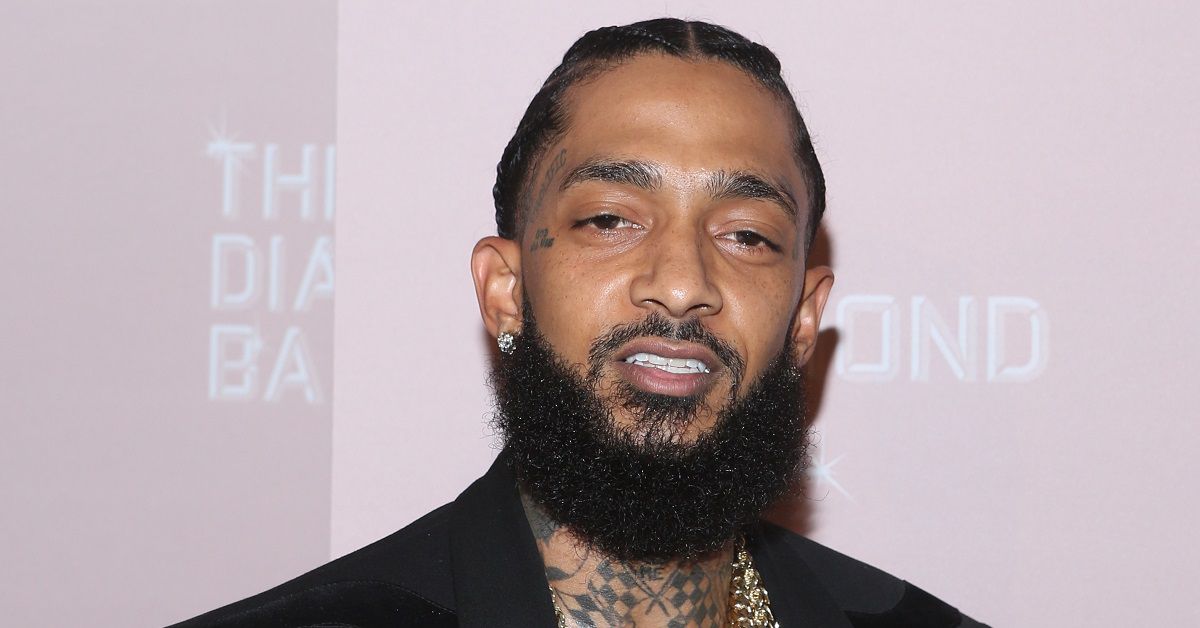The Los Angeles Police Department is always in the middle of something.
It seems that the Southern California law enforcement outfit is in the news for inappropriately targeting … yup … rap stars … again.
According to The Guardian, deceased rapper Nipsey Hussle the focus of an LAPD program called Operation Laser (Los Angeles Strategic Extraction and Restoration), which attempted to use predictive policing technology to identify “chronic offenders” and specific locations linked to gun violence and gangs.
The police investigation looked at the “Double Up” rapper’s lifestyle and basically a lot of money in following his moves, his gang life, and “policing Hussle’s street corner and his store, Marathon Clothing.”
Michael Safi, an American reporter for The Guardian, identified the 77th division of the LAPD as the ones that locked in on the artist, canvasing his family, his associates, and his businesses.
He said, “Nipsey and his family and friends, all had frequent contact with LAPD. LAPD had a lot of interest in Nipsey and his business efforts from the very start.”
“His brother Sam told me how they used to sell stuff on the street corner. How LAPD would come over and hassle them.”
Black Sam, Nip’s brother says in a tape, “We were selling shirts, socks, clothing, and shoes across the street from the Louisiana Fried Chicken. They would come and arrest us, cuff us, and take all of our stuff. We would be looking up as all of that happened like ‘Damn, we just lost thousands of dollars of merchandise. Y’all not doing this to nobody else. We trying to be legit.’”
“‘Nah, Y’all not legit until y’all pay taxes, like everybody else. You got to pay rent’,” Sam says the cops would say to them.
So with that advice, the brothers worked hard to open up legitimate businesses. Their store was originally called “Slauson Tees.” This store sold the brand, “Marathon Clothing.”
The success of the store, brand, and Nipsey’s career was unexpected and under suspect by the LAPD. In 2017, the two brothers opened their flagship store.
“Finally, we were able to open up the flagship store of the Marathon Clothing. The City Councilmen came. All the people in the community came. They were saying ‘We know where you guys started from. We so proud of you,’” Sam recalls.
It was even proclaimed “the biggest grand-opening in Southern California” up until that day. However, the LAPD was not happy.
“Their whole goal was just to shut us down,” Sam said. “Even though positive things were happening in the store.”
The police presence actually went up, even though the store was positive and totally legal. Allegedly, even when out-of-state off-duty officers would come in to support the business (as fans of Nipsey), they would be interrogated by the beat cops focused on finding a crack in the new business.
The brothers were considering moving to a different area, to free themselves from the harassment of the police. However, Nipsey’s commitment to the neighborhood wouldn’t let him leave.
Nipsey was murdered in that store lot, the area that was constantly swarming with officers. Still, their presence did not stop his death. At Nipsey Hussle’s funeral, Sam spoke about the harassment from the LAPD and how the force hit them with a “Nuisance Probe.” The police tried to get the landlords to evict them, but because of the economic and sociological transformation the shopping strip had undergone, the owners would not shut them out. Instead, they sold them the property.
The harassment was actually sanctioned by Operation Laser, the secret police ran program founded seven years prior to his death.
Johana Bhuiyan said that the idea was that “if police used historical crime data, they could extract offenders as well as a potential crime with the precision of a doctor using laser surgery to remove a tumor.” They equate people in the hood, who had committed crimes and those who did not commit crimes but were in a relationship with past offenders with tumors.
They believed that the area around Nipsey’s store would attract crime and they actively looked for criminal activity there, despite there being no major crimes on the premises.
The program used artificial intelligence to “predict” crimes and suspects for those crimes, using broad and sweeping generalizations. This was a classic case of profiling based on race, community, social class, affiliation, and gender.
Black Sam said, up until recently, he had no idea that this was happening.
Now defunct, it seems that the lasting effects of the campaign lead rappers to be racially profiled and harassed.

